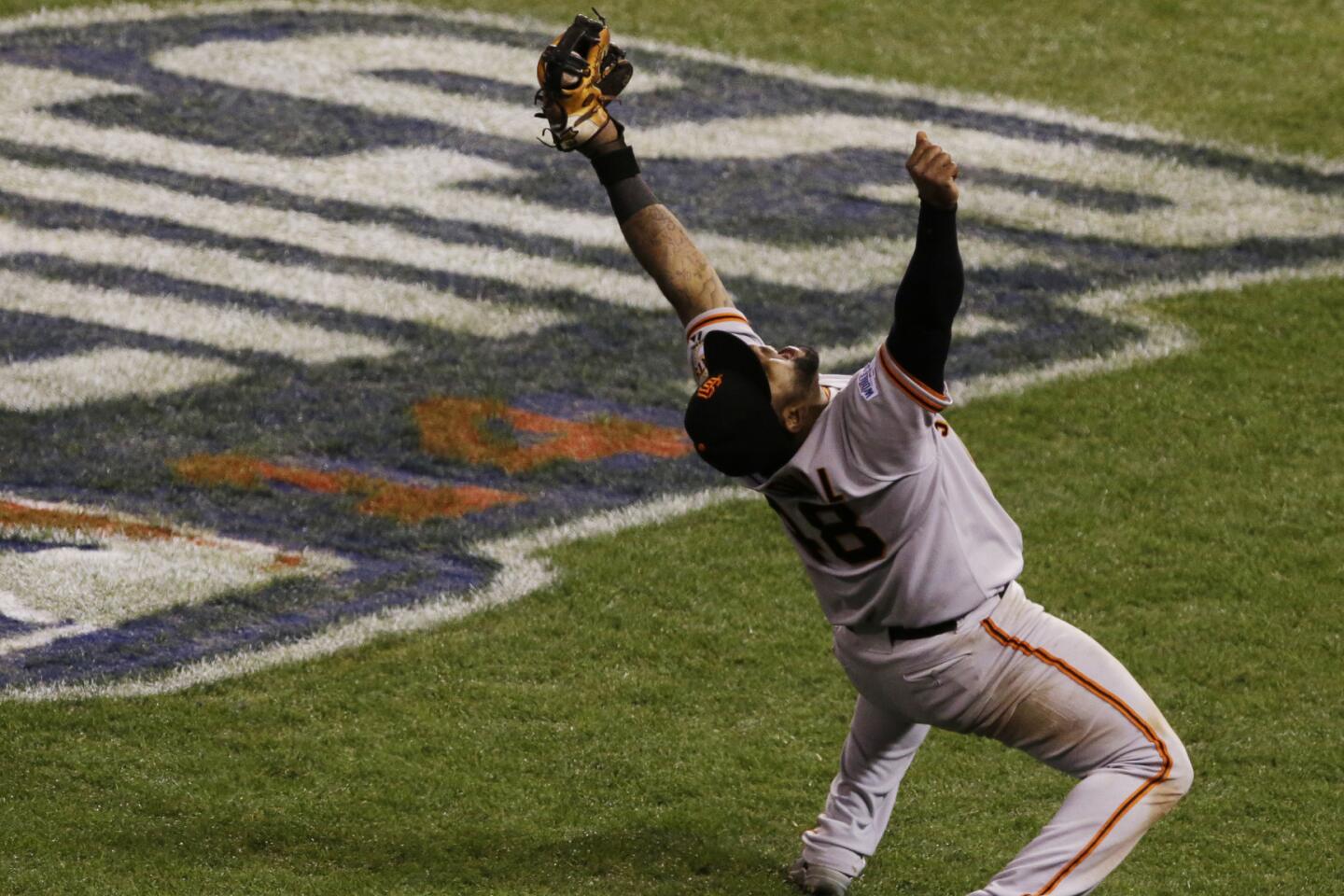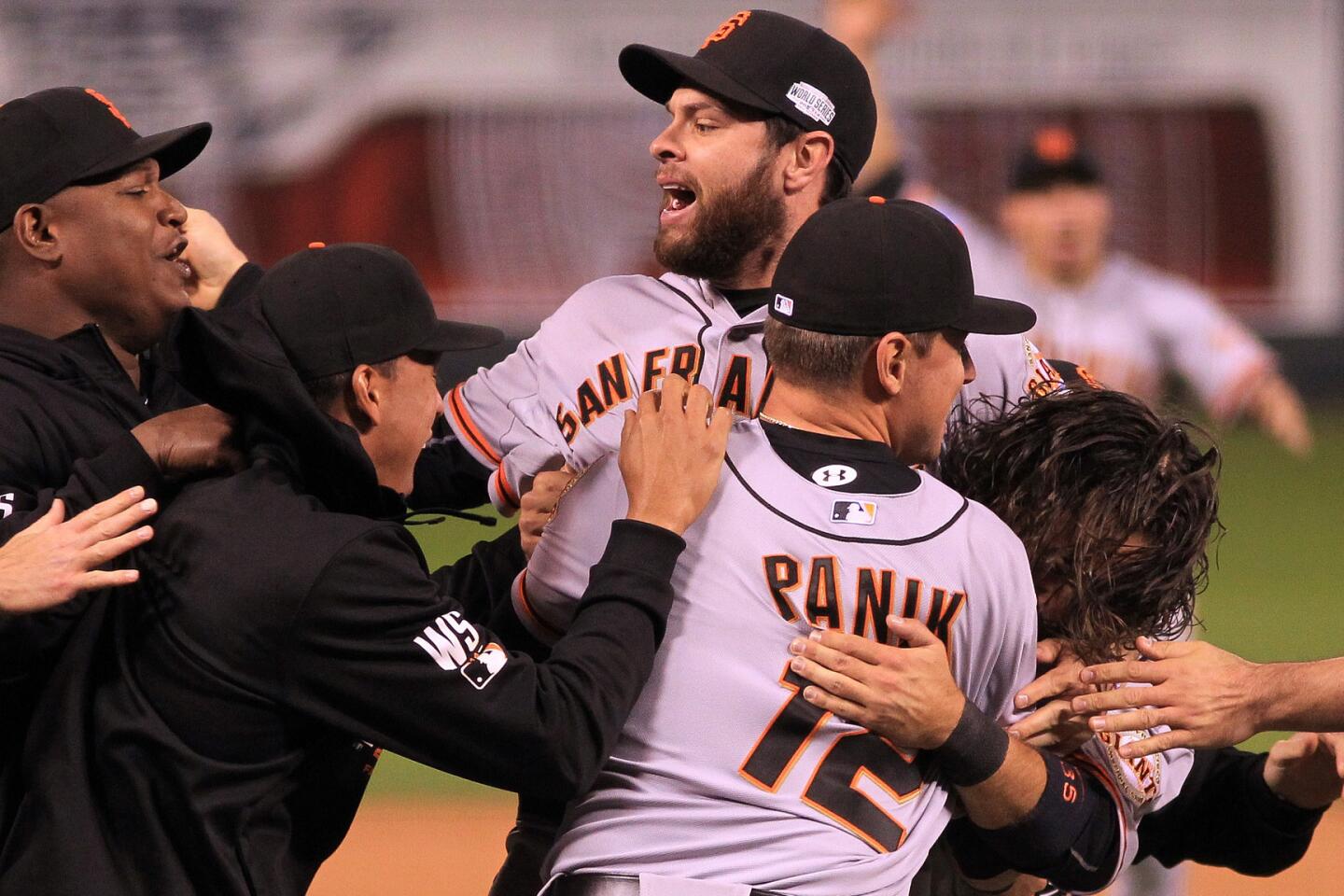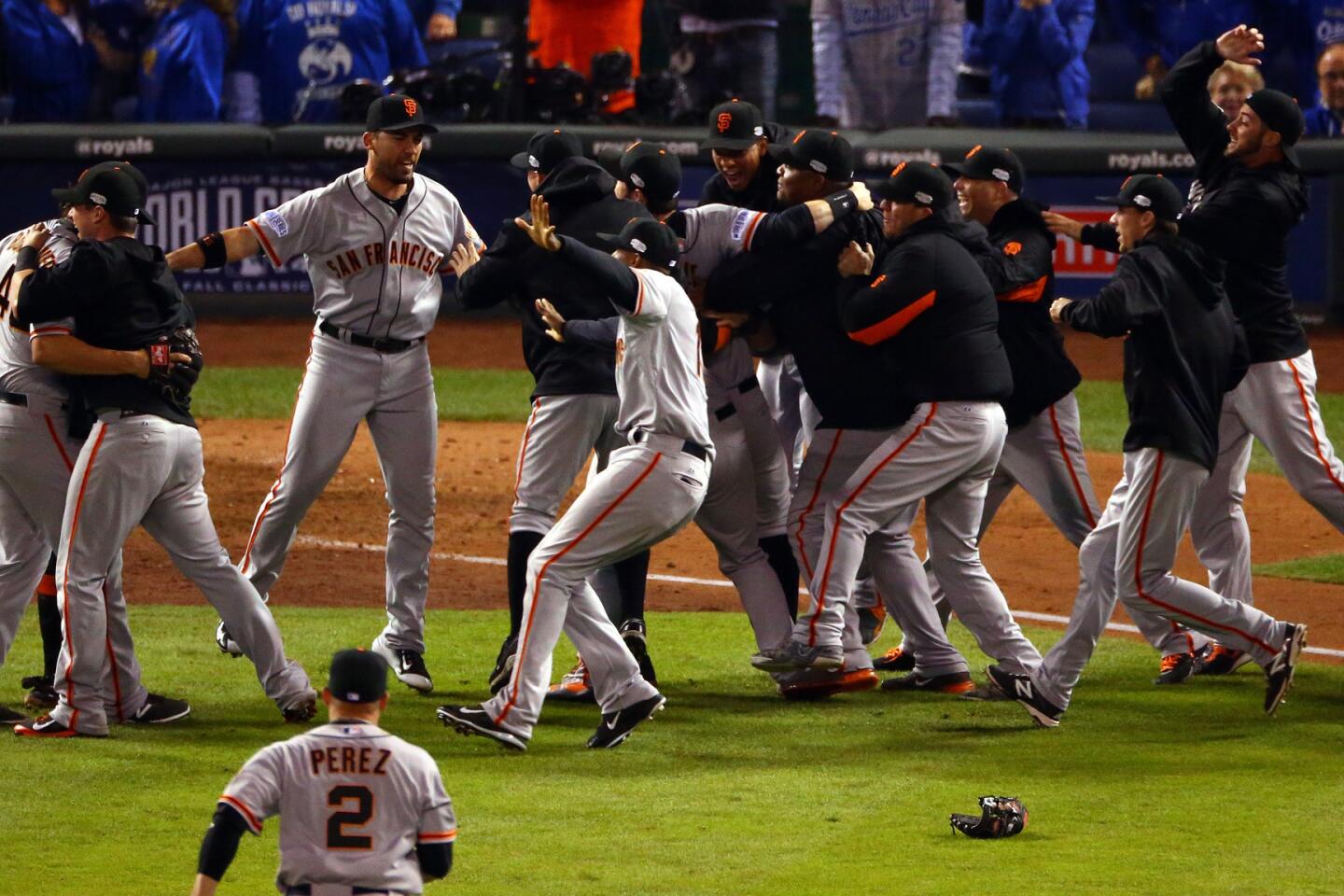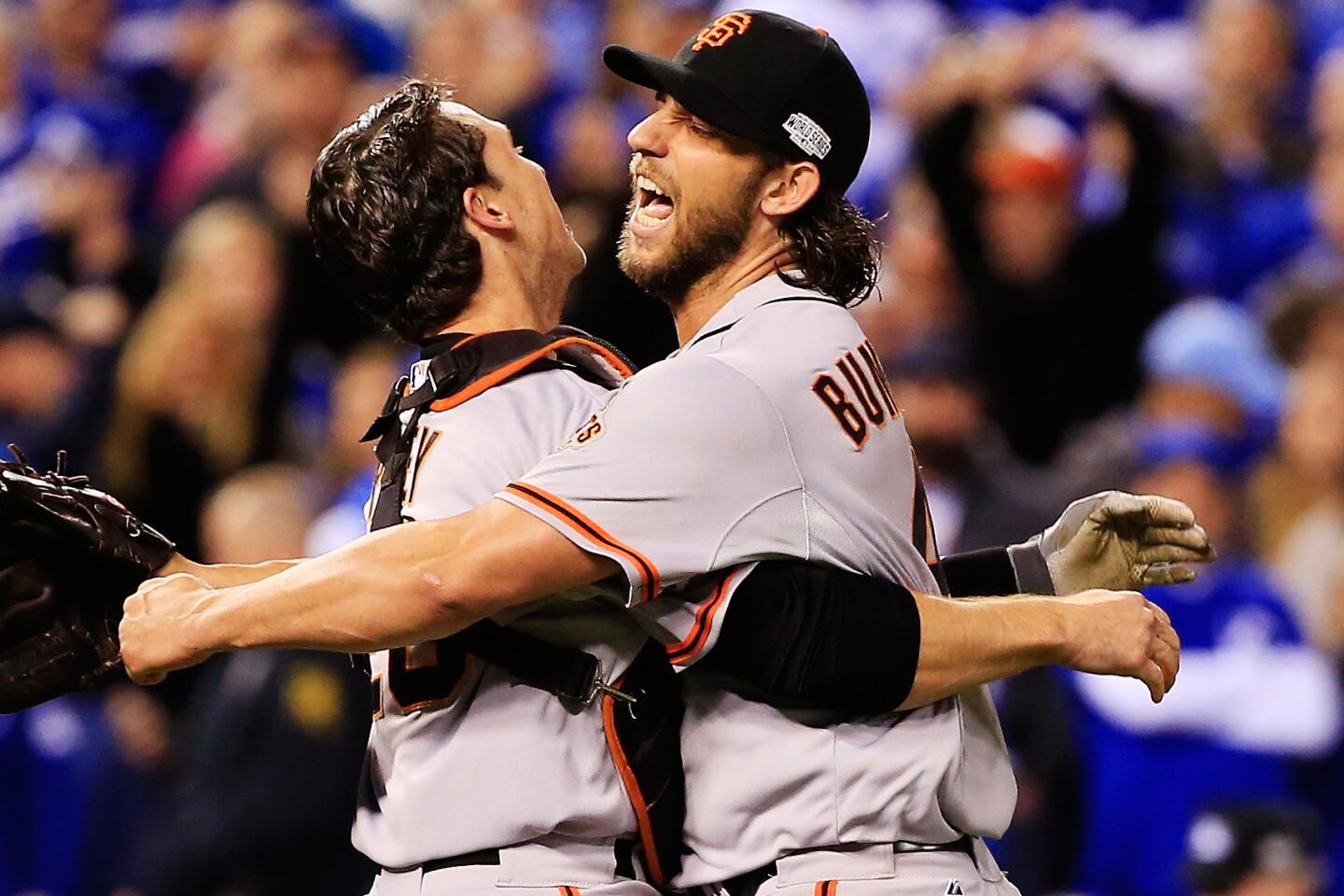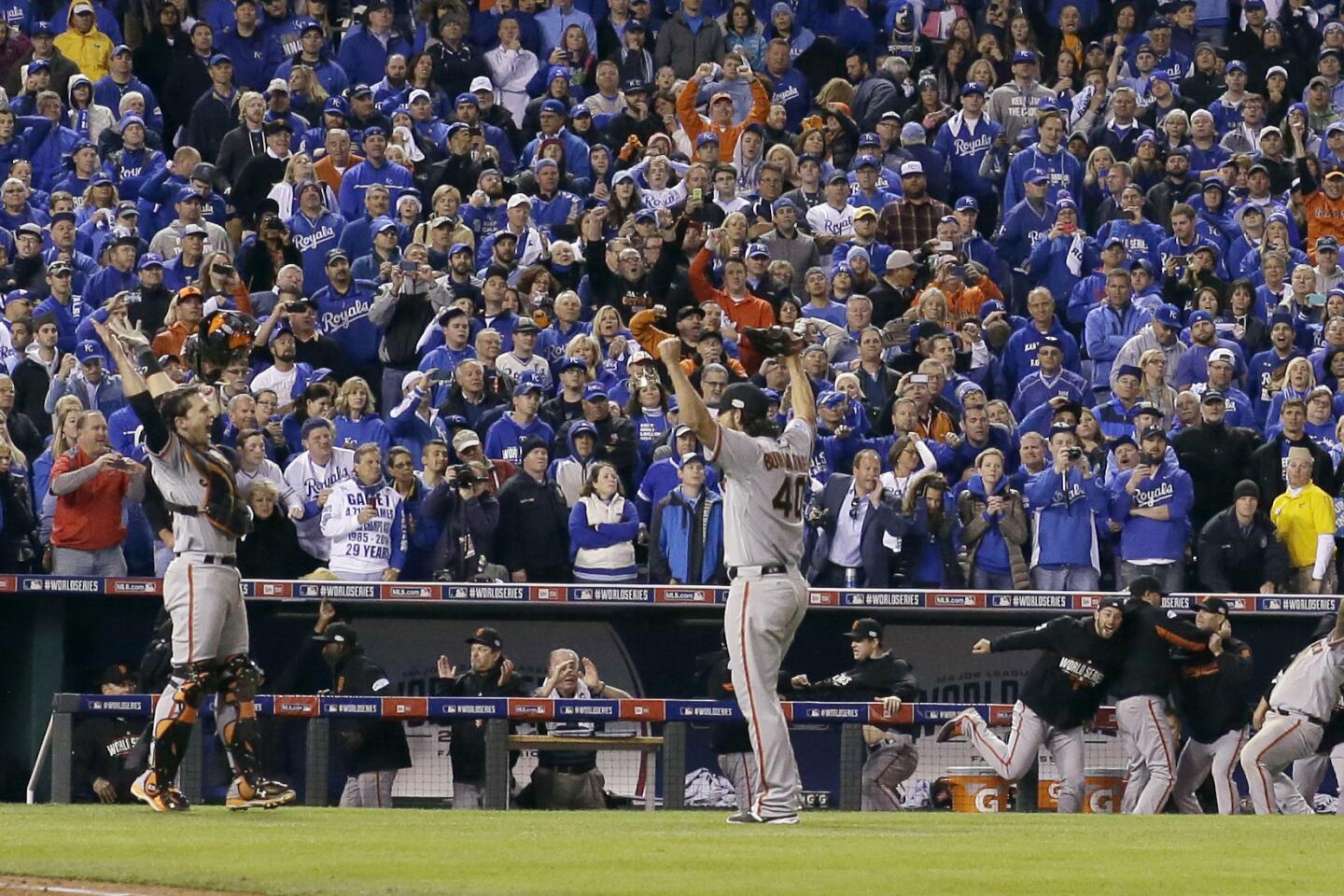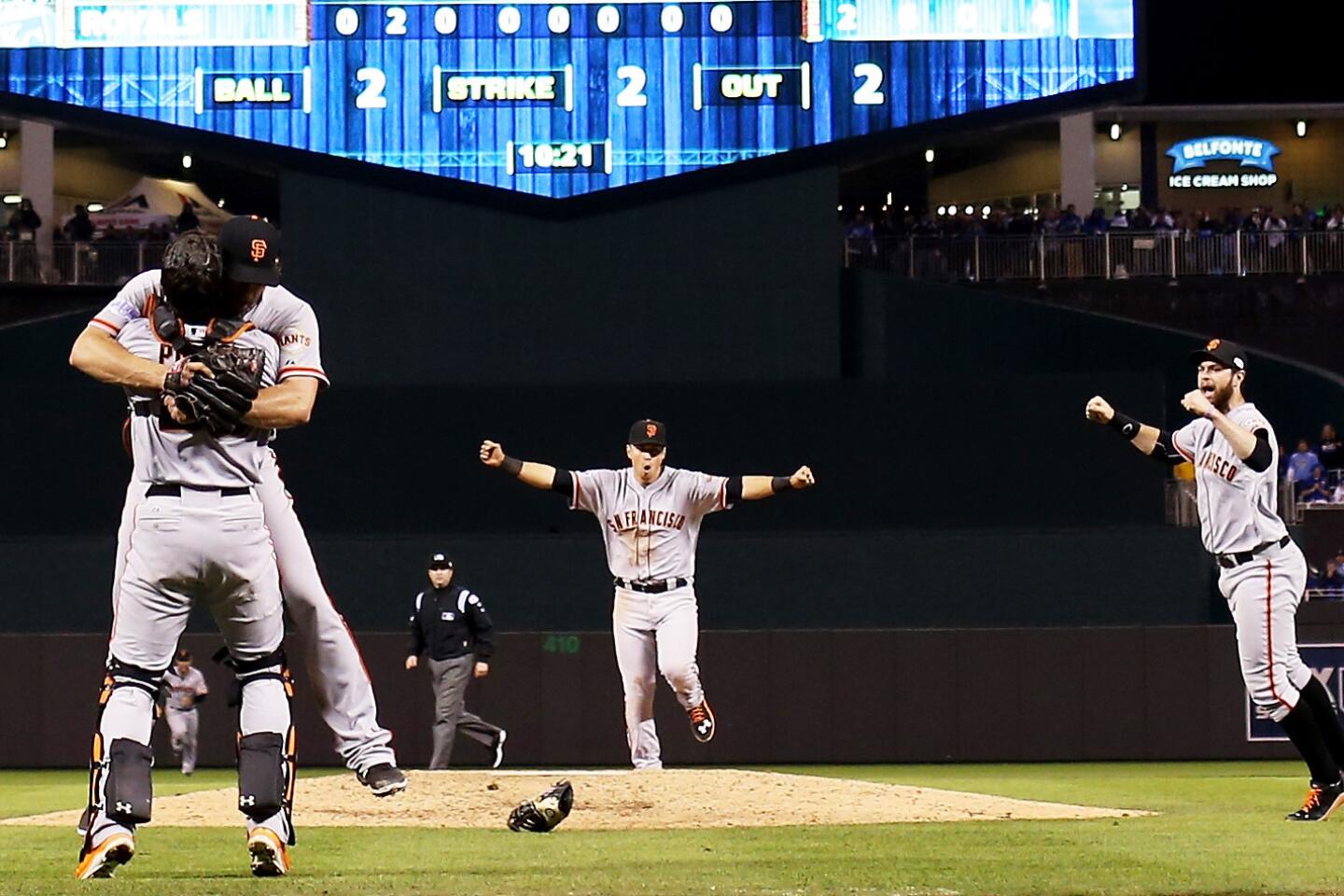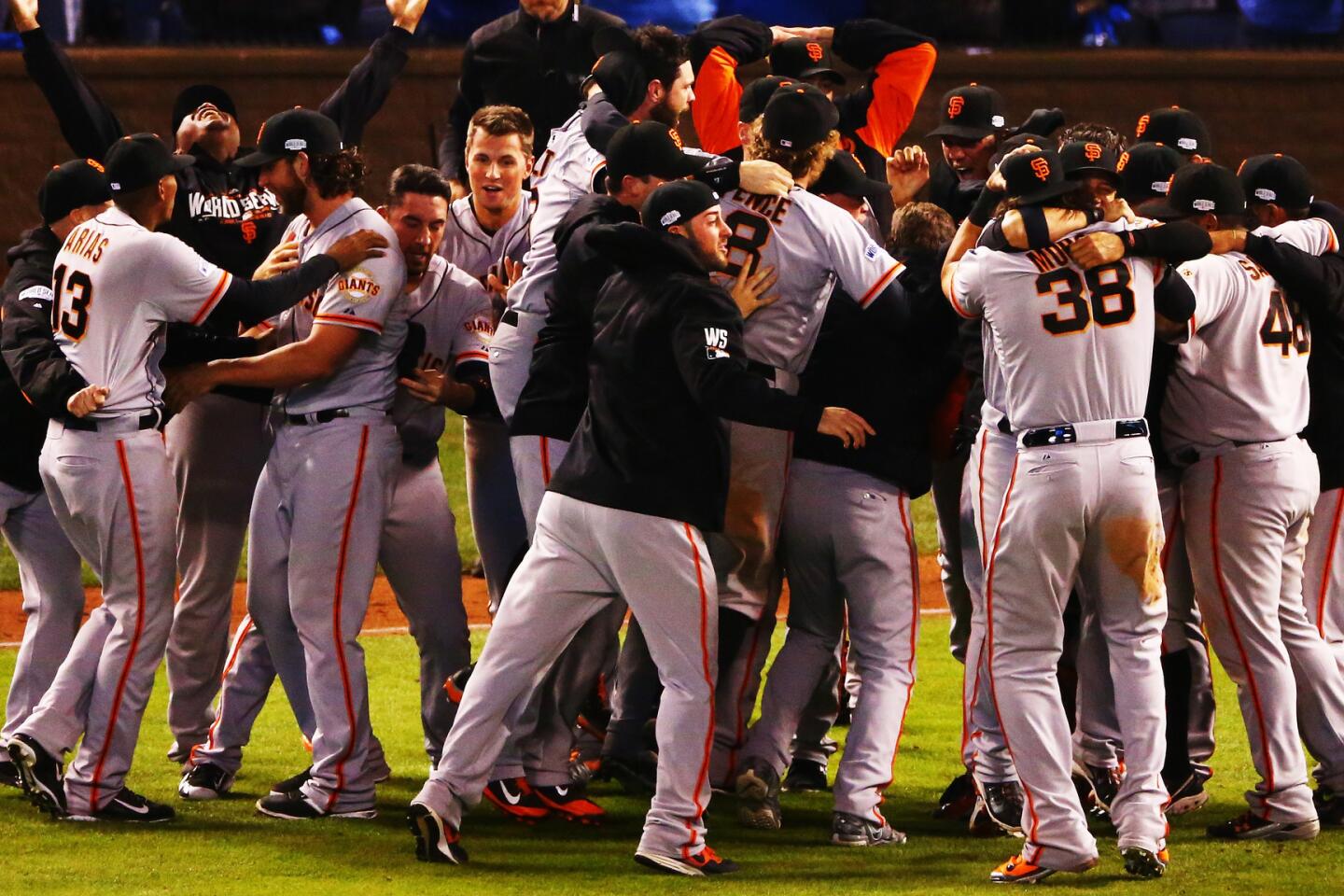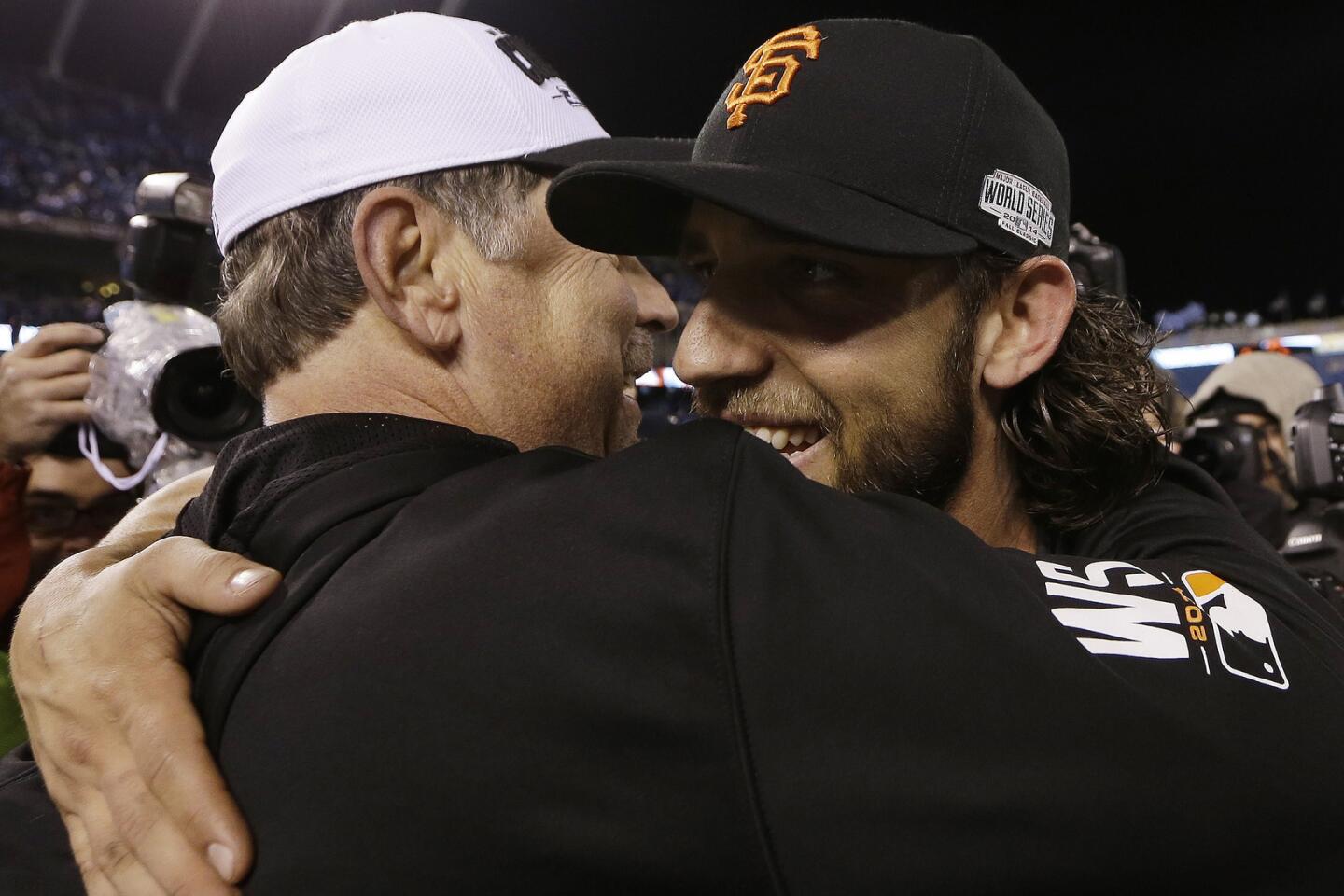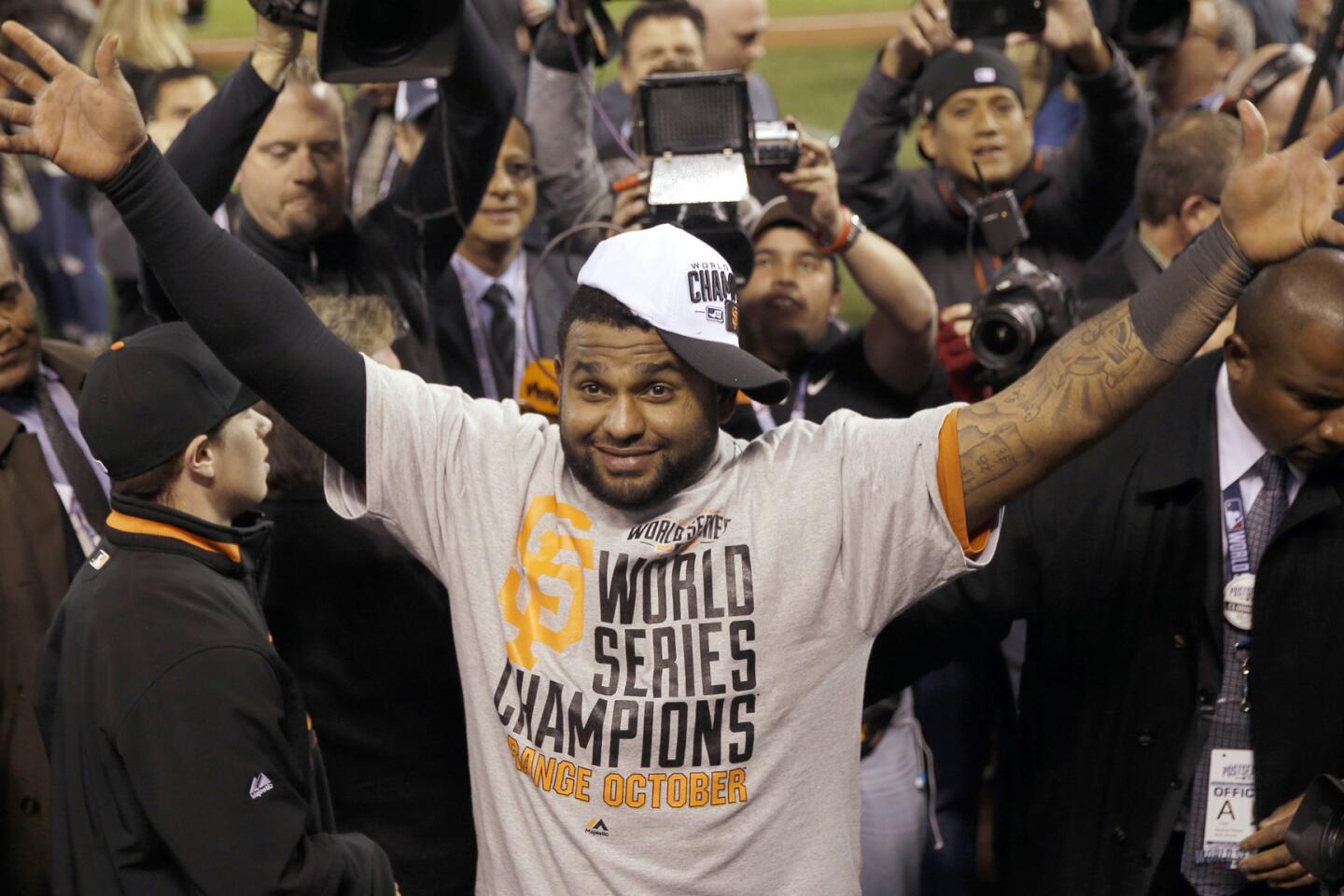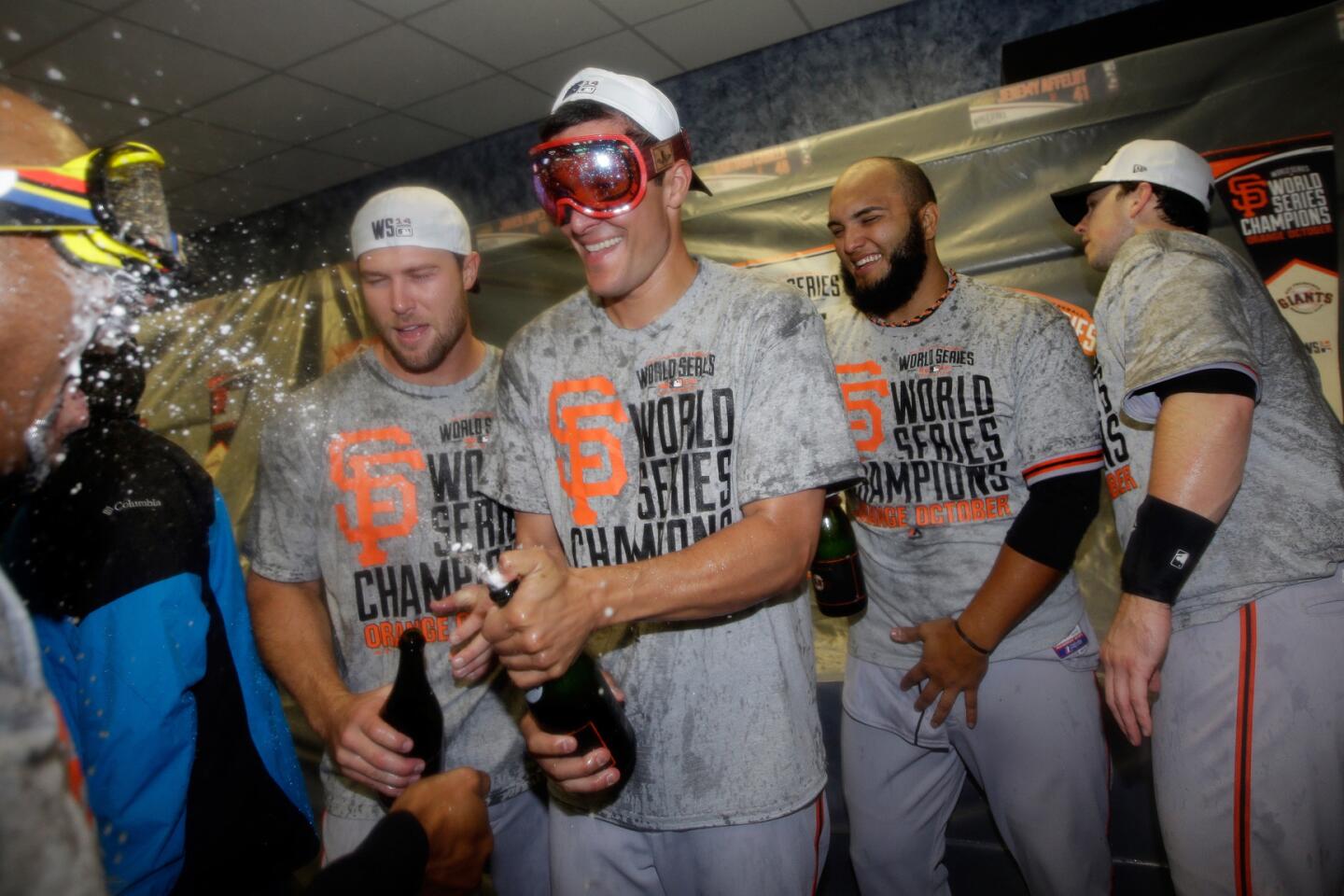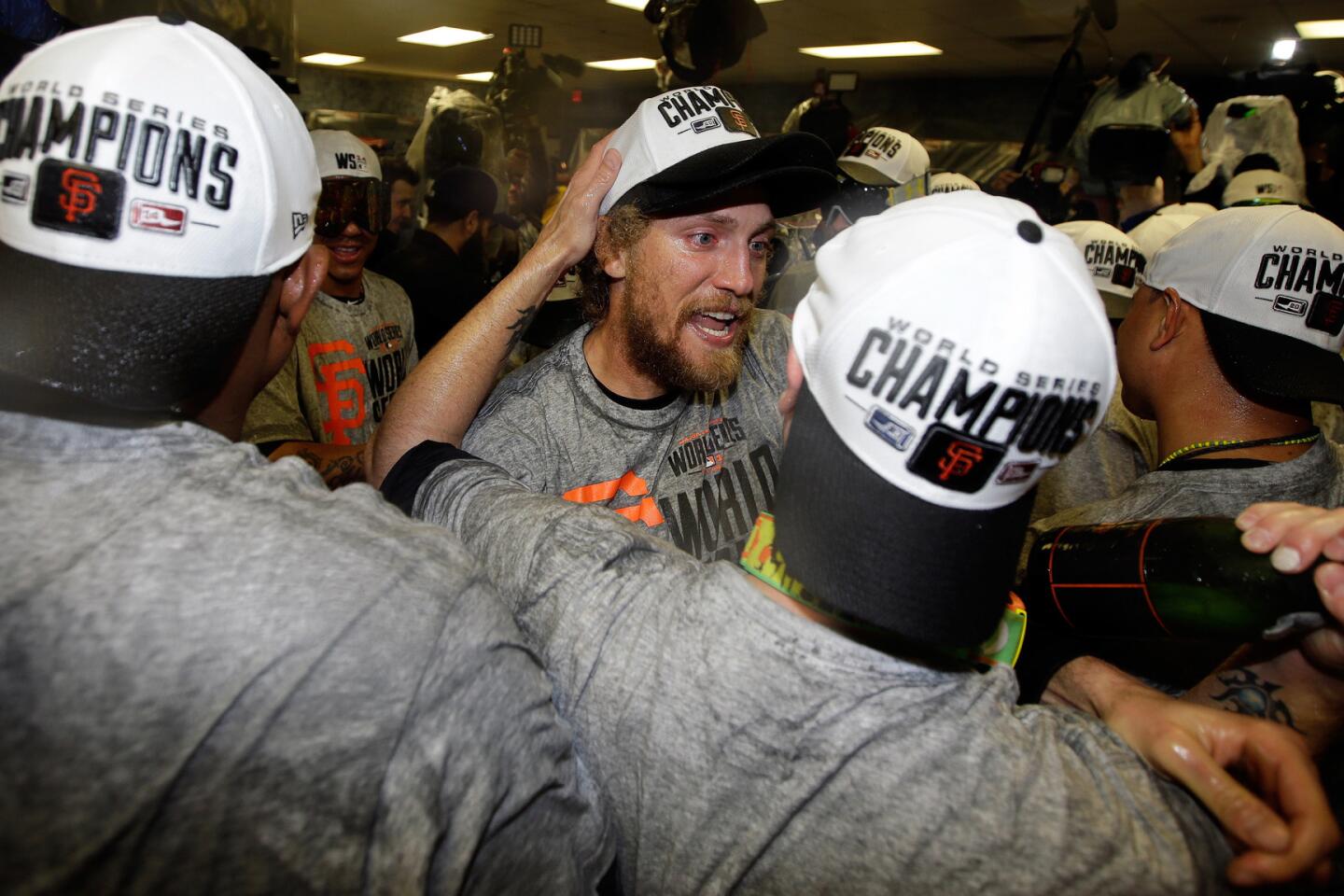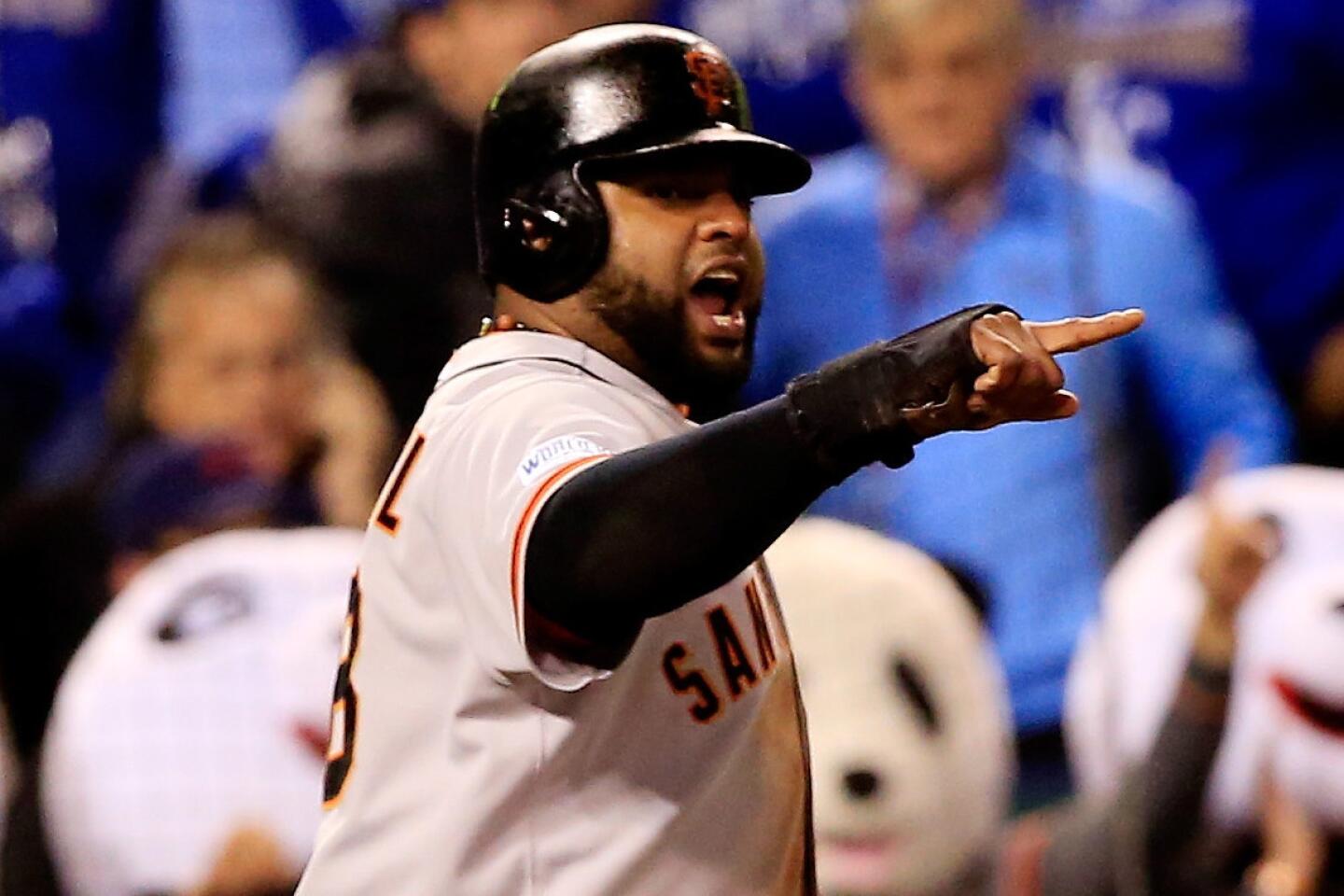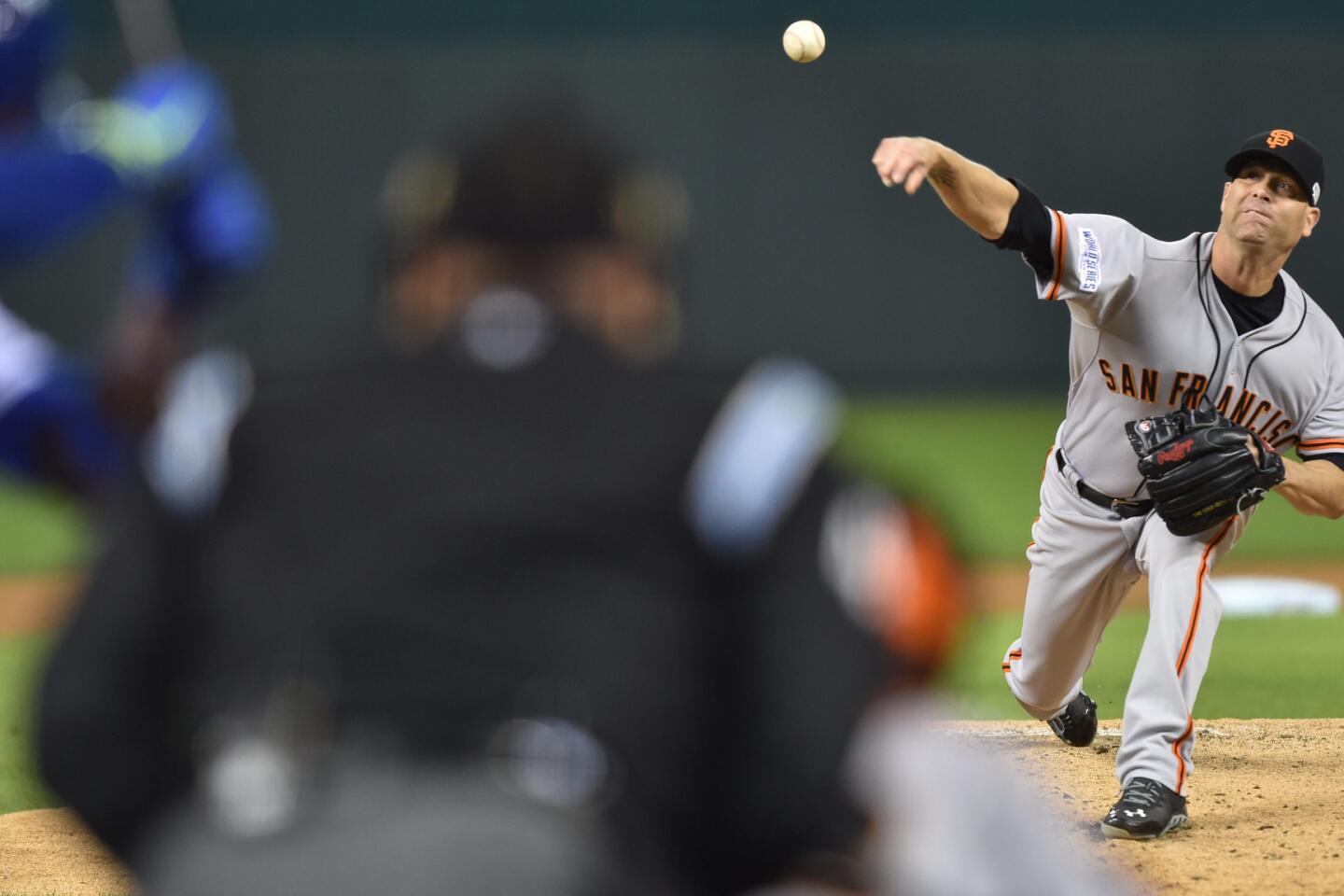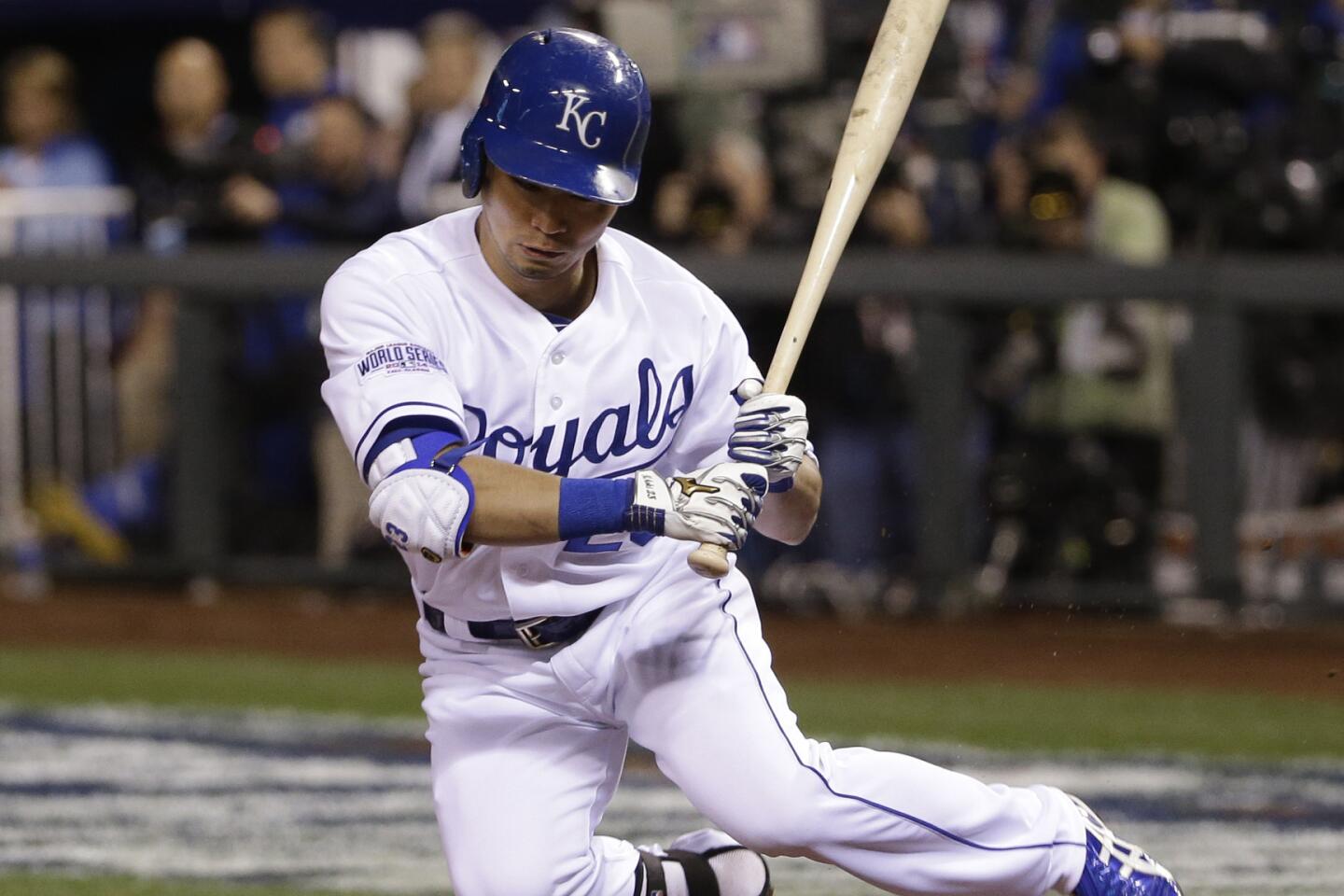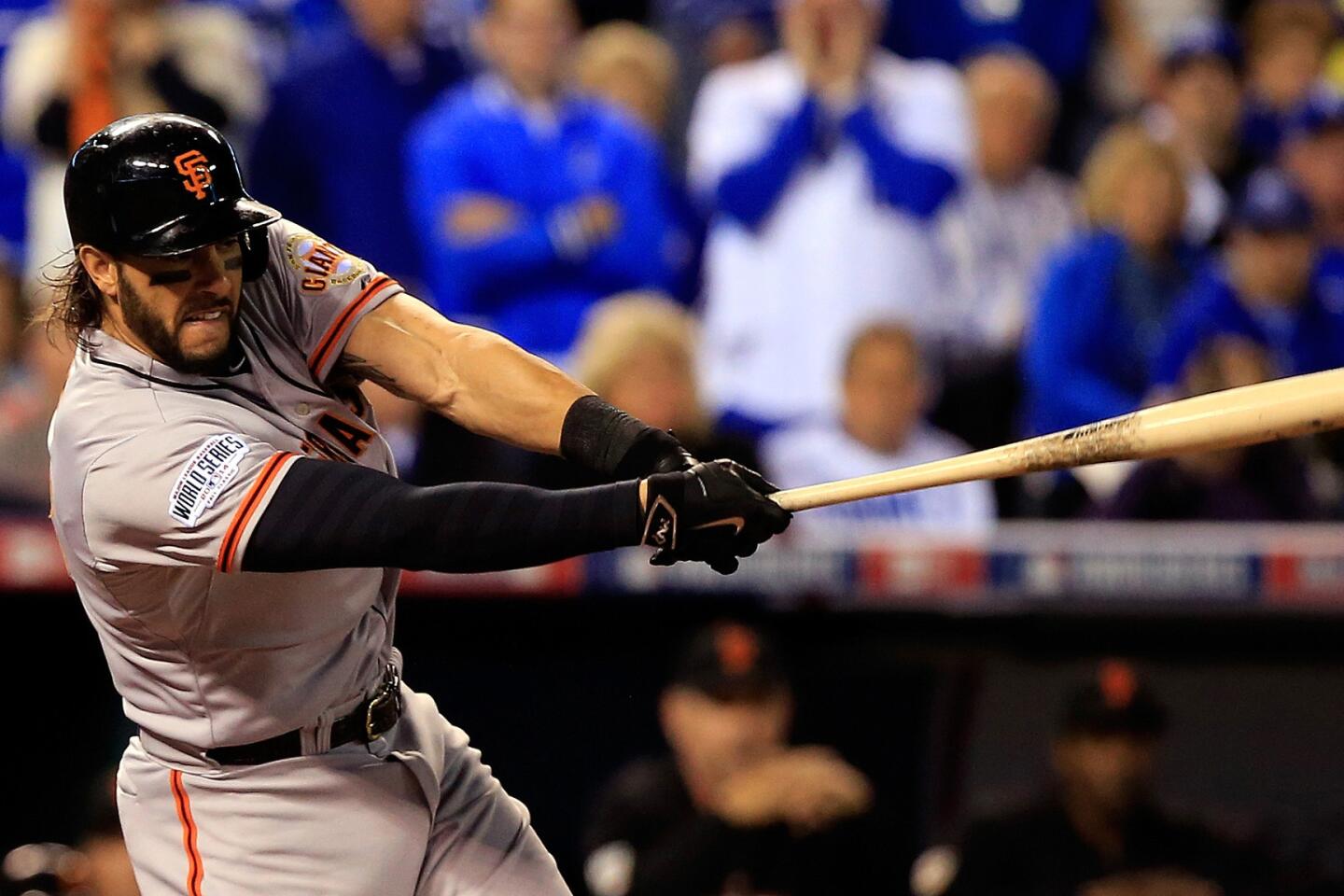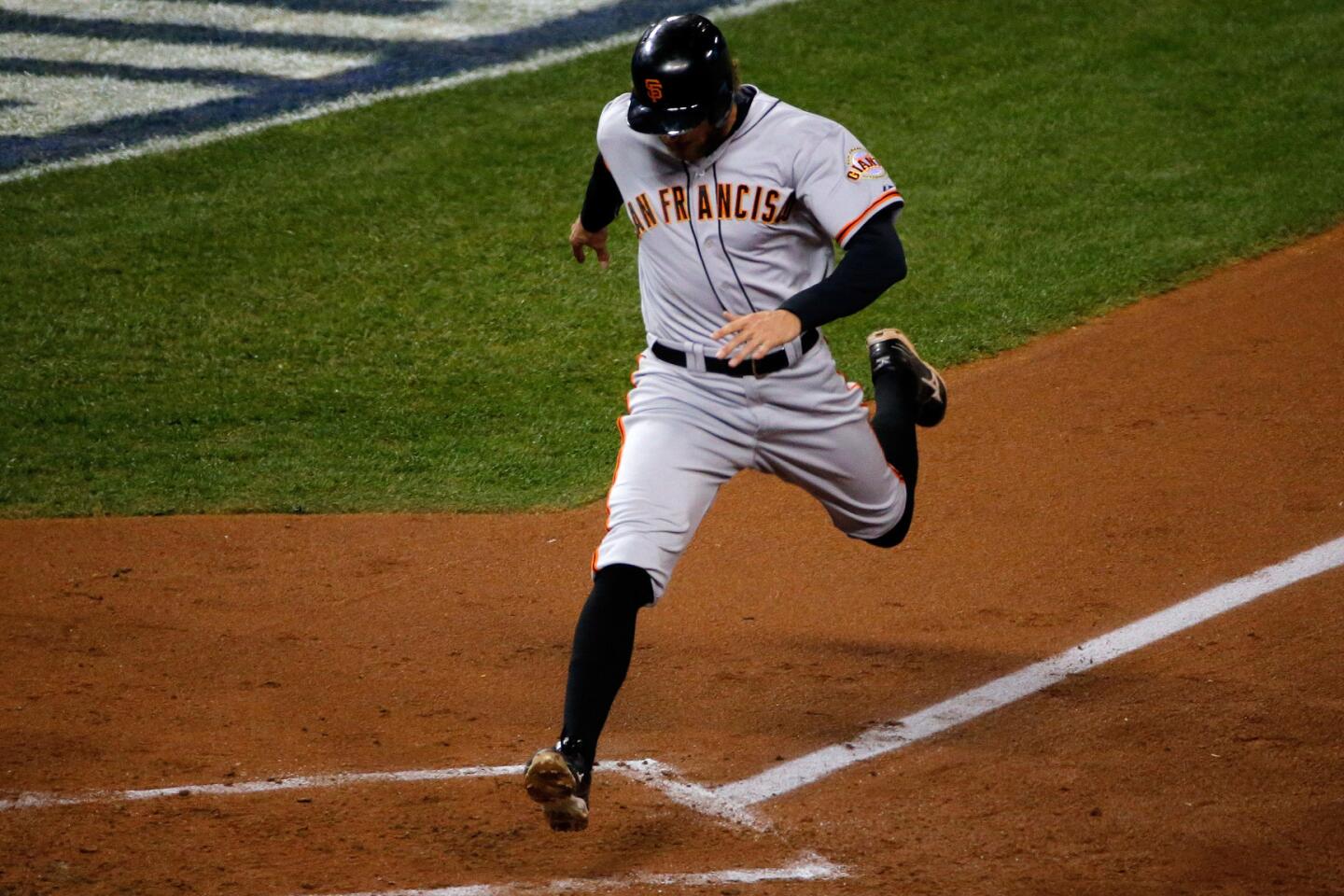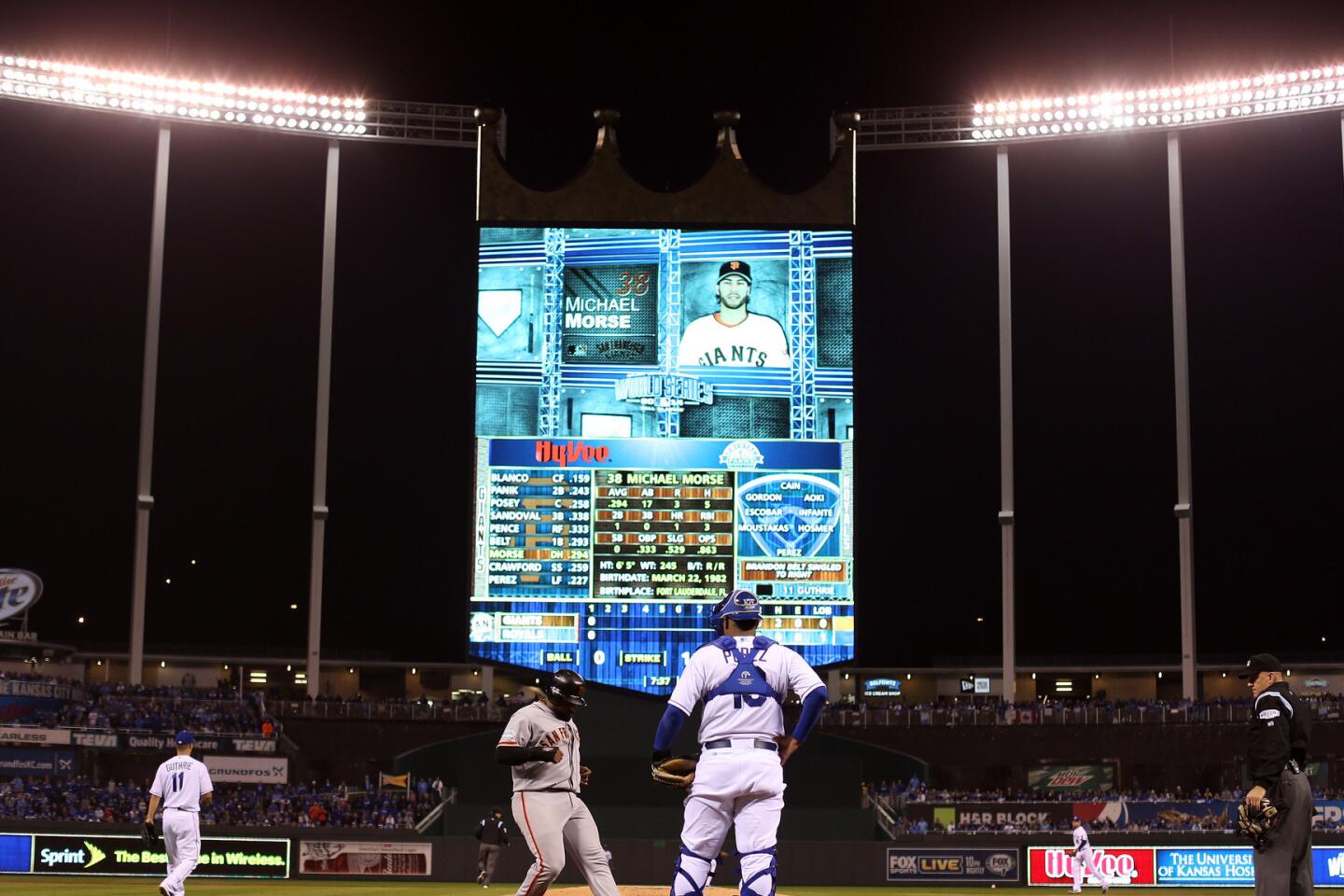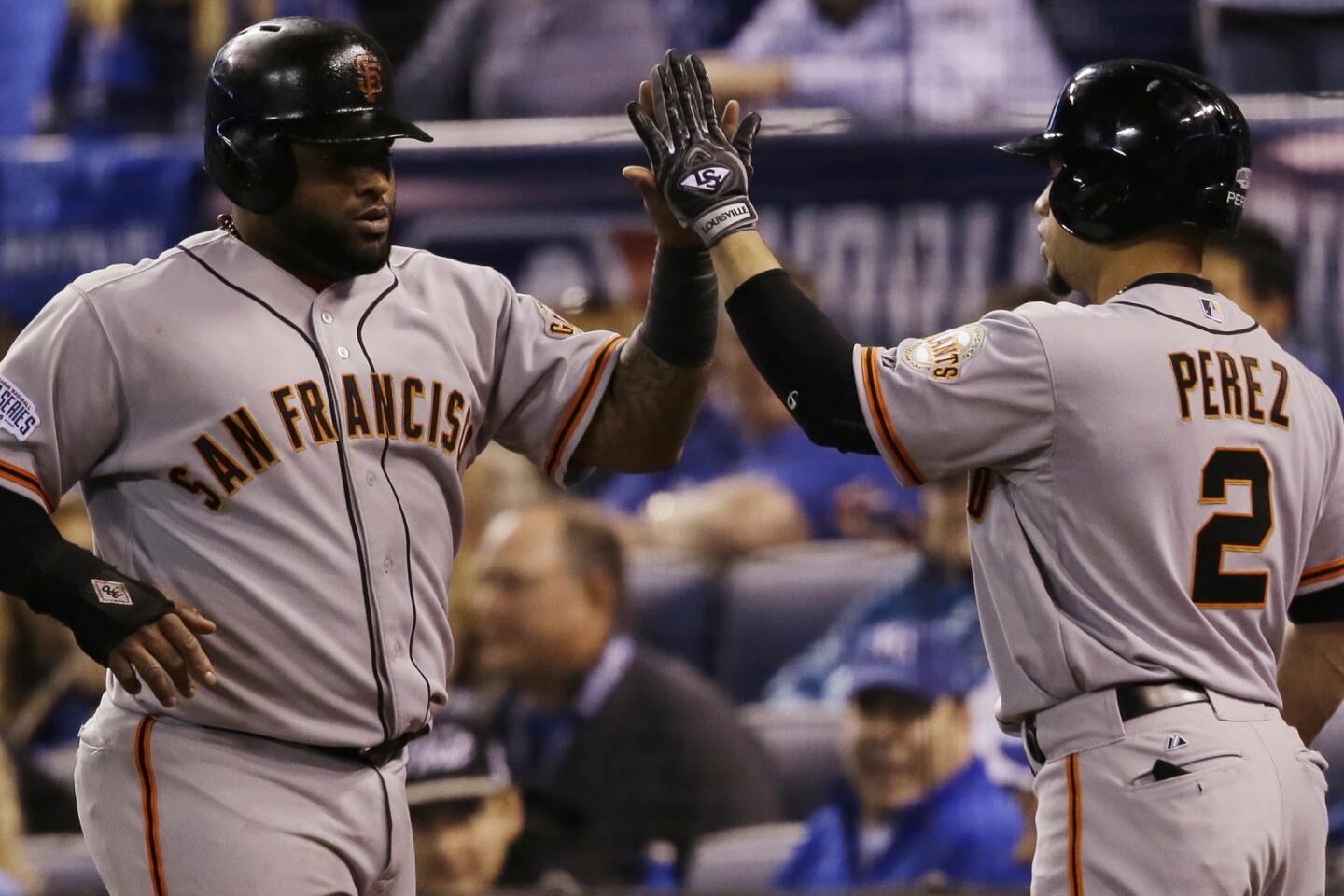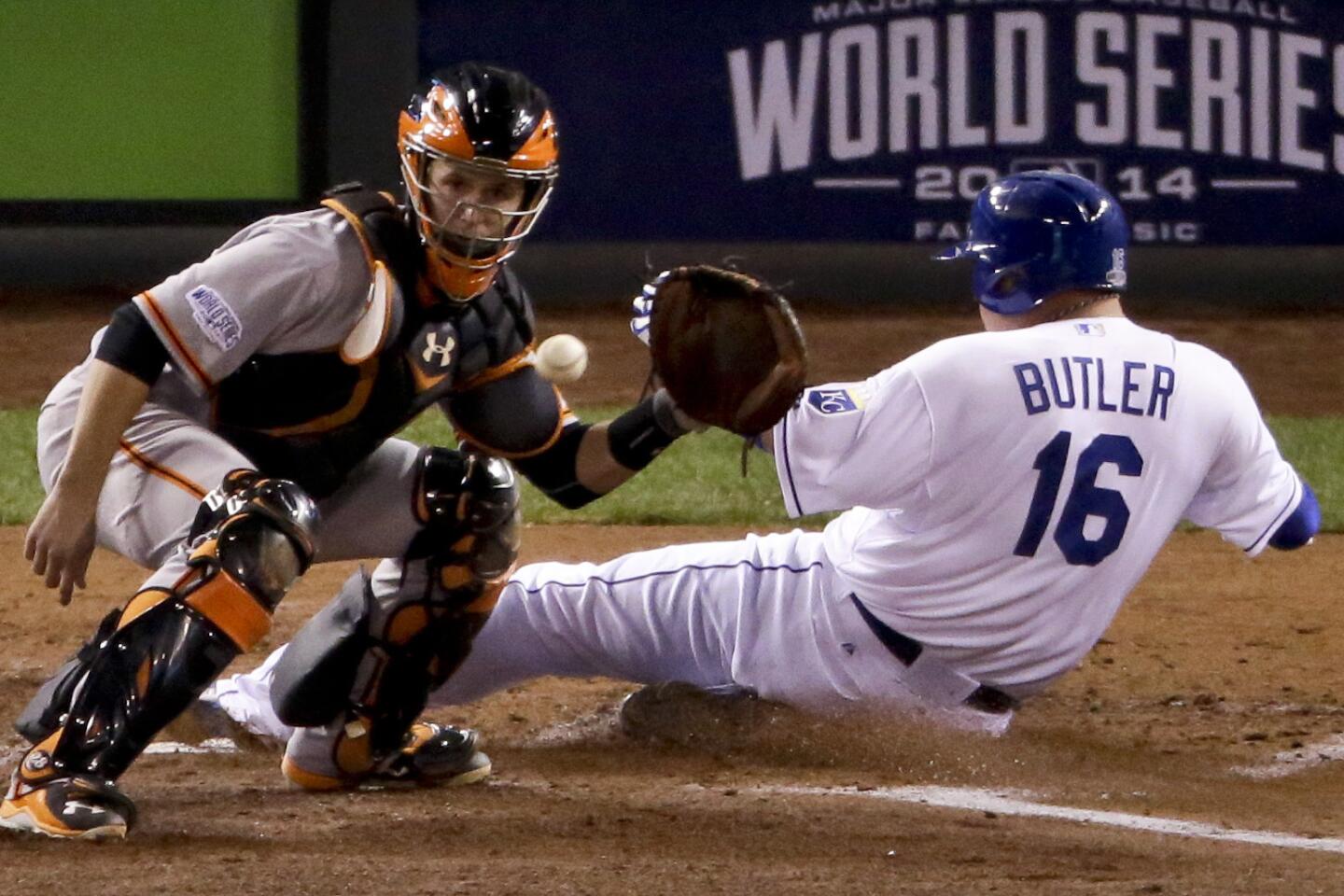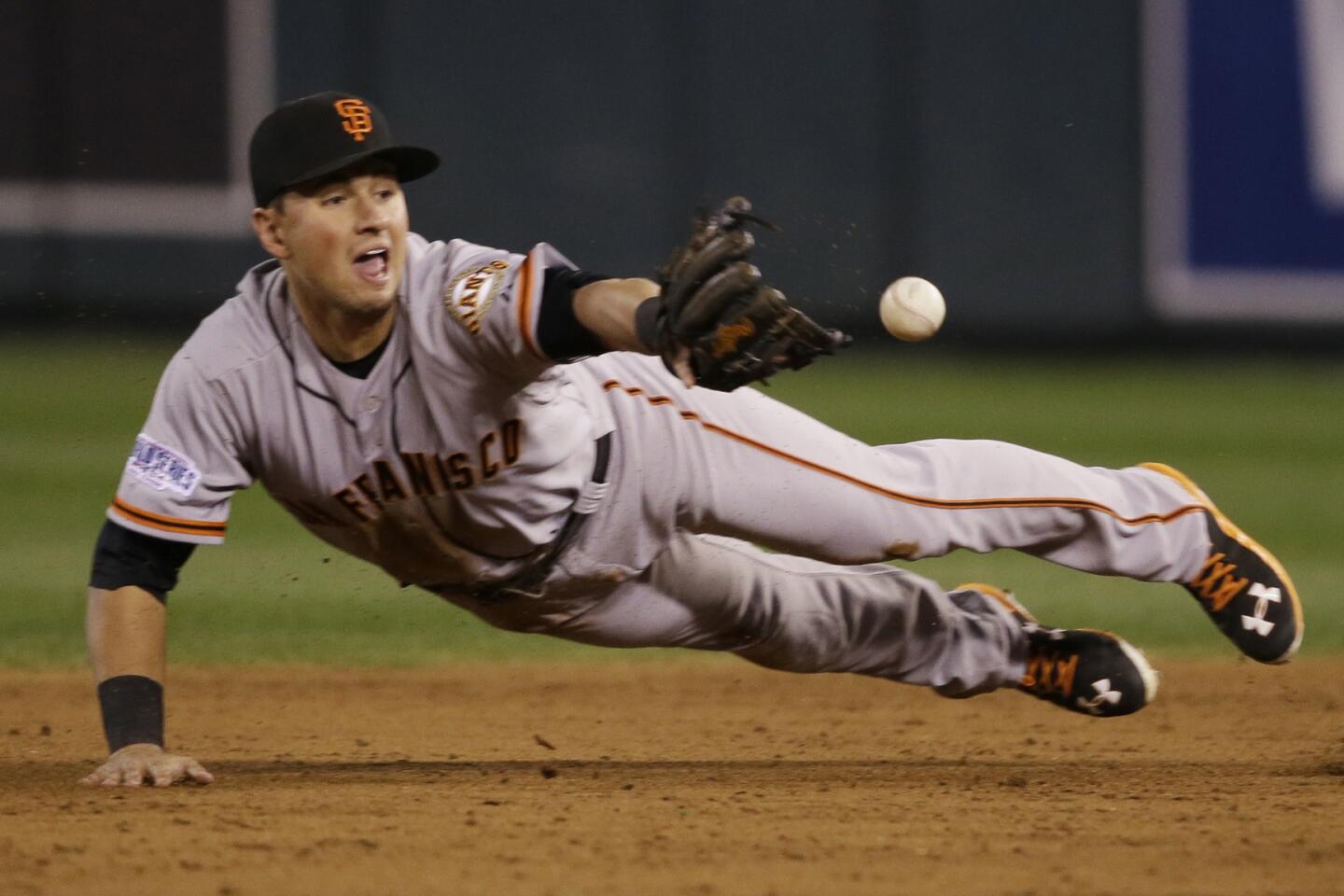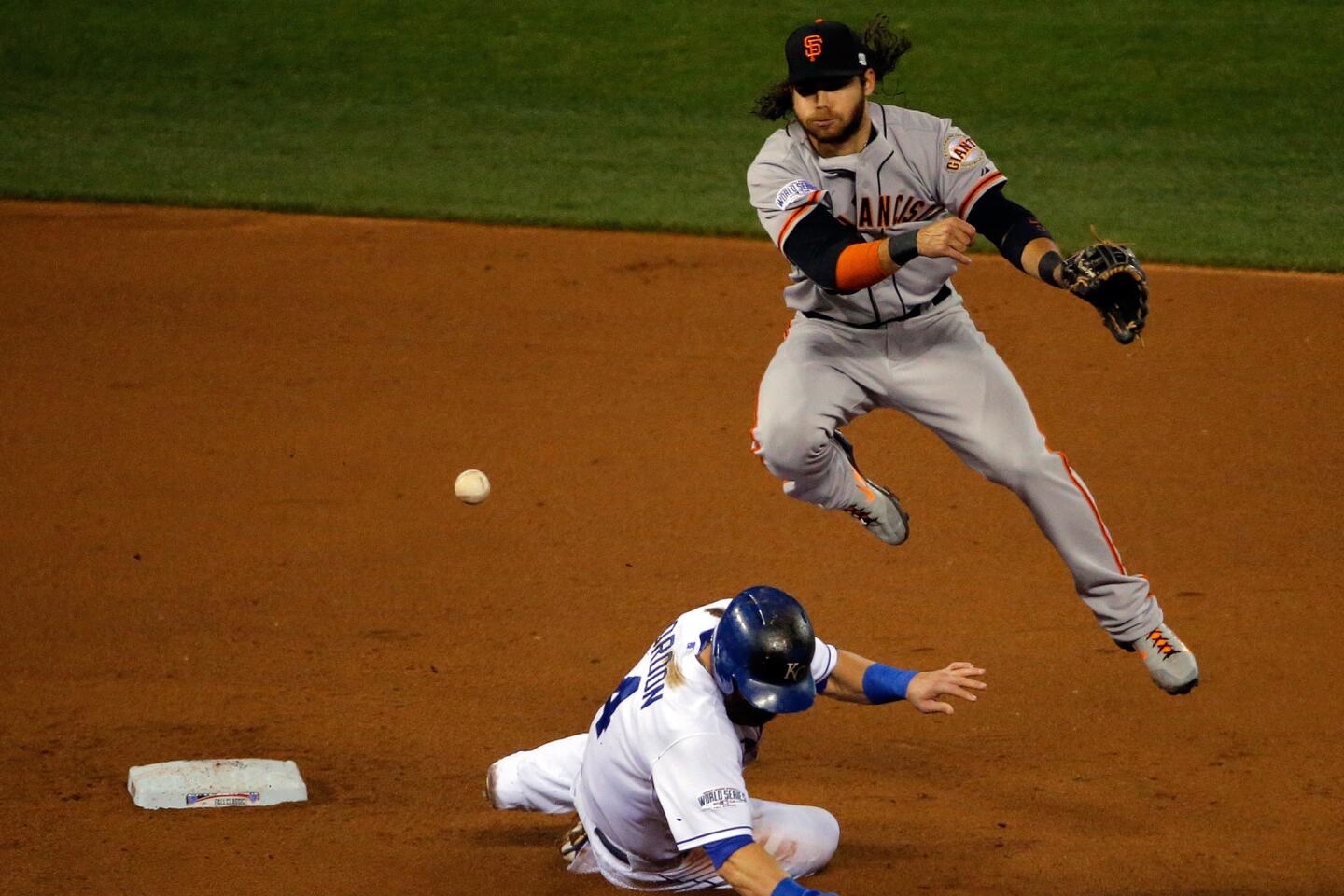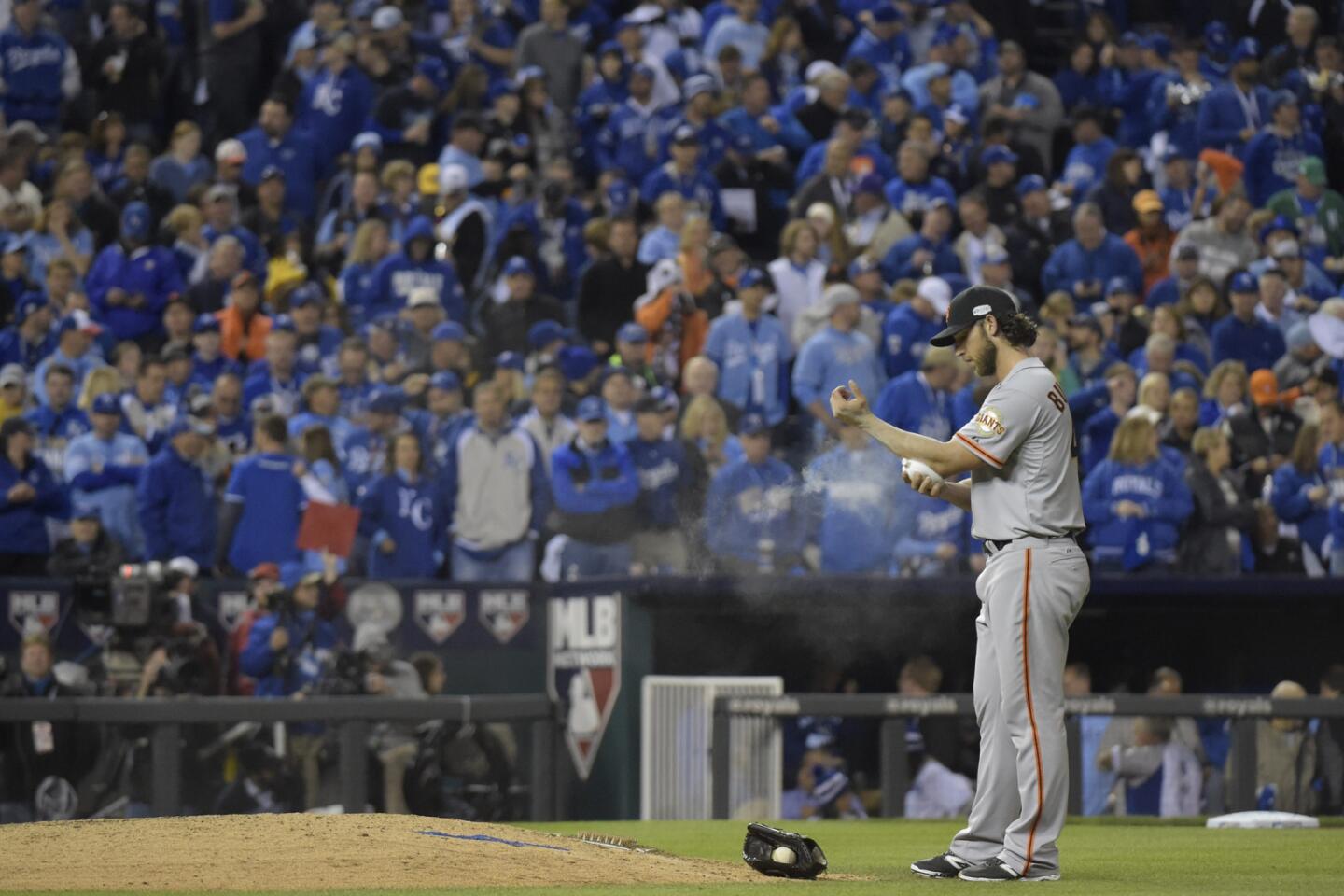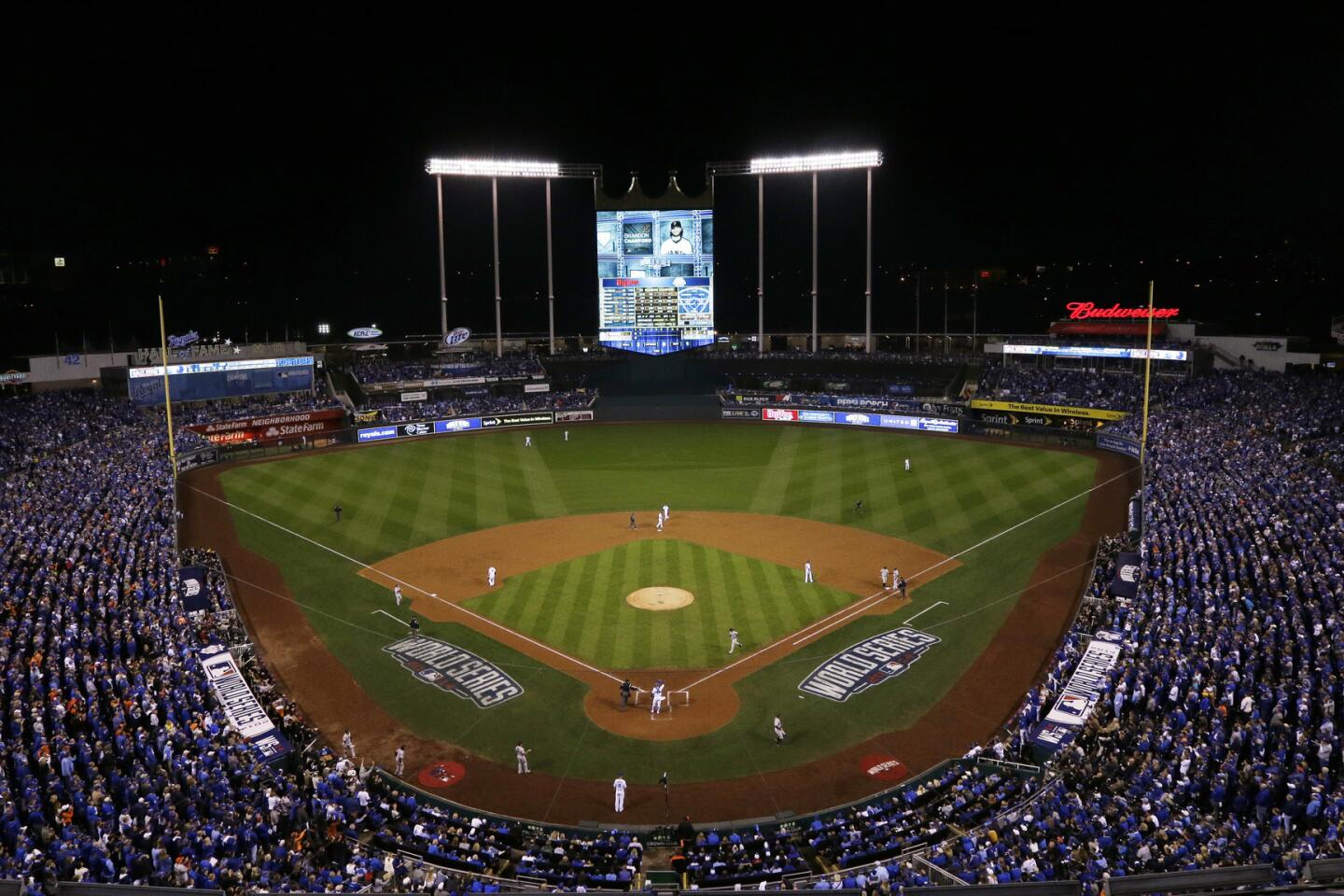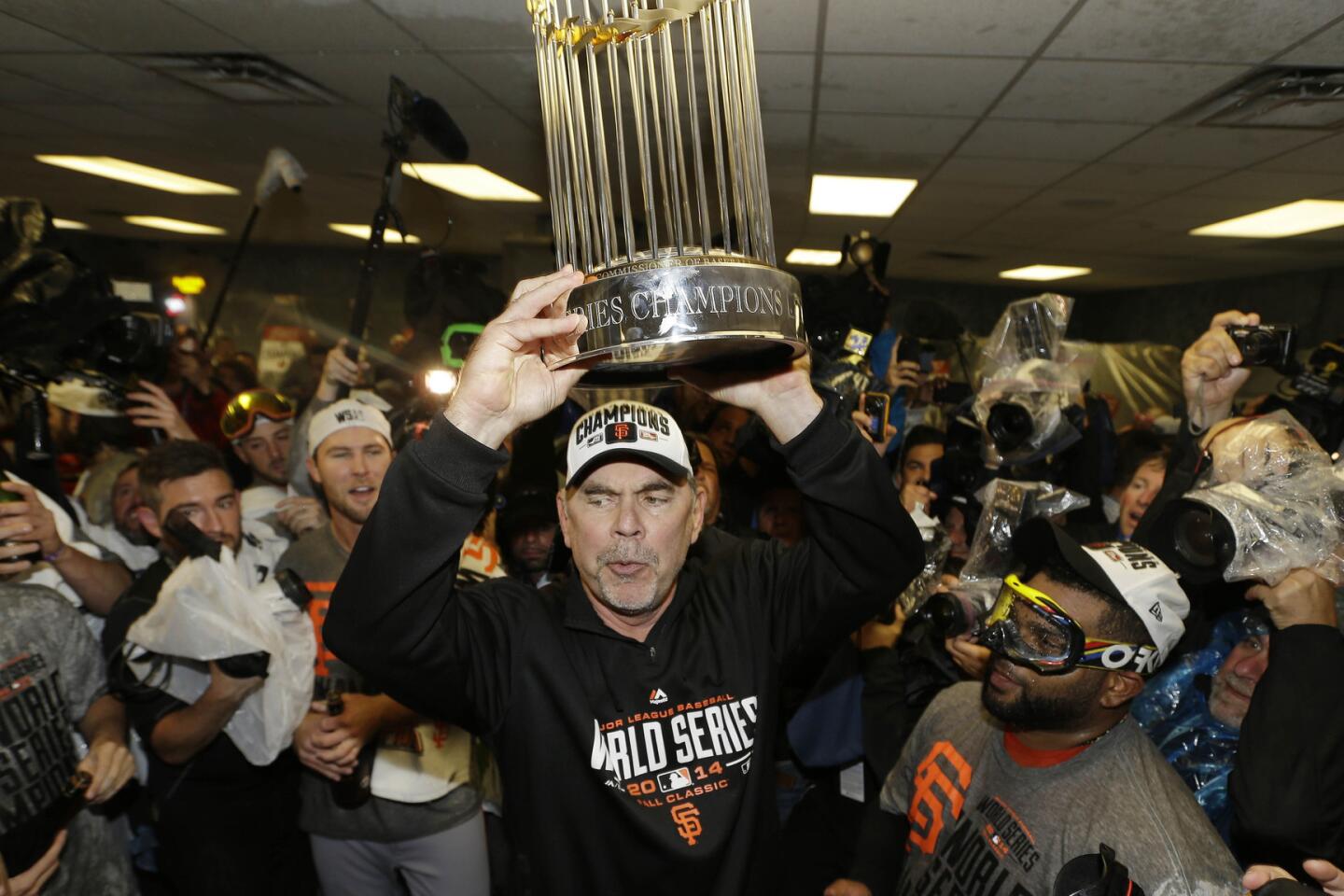Op-Ed: A deep-rooted reason to root for the Giants -- or the Royals
- Share via
I must confess something. I live in San Francisco, home of the Giants, who just won the World Series. And I’m proud.
This is really odd. I have no interest in baseball and only dimly know that it doesn’t involve slap shots or birdies. The last time I attended a baseball game (involuntarily), Jimmy Carter was president. I don’t know the names of any of the Giants players except for Willie Mays, and it wouldn’t surprise me if he’s retired by now.
But despite that, I felt fleetingly glad when they won the pennant, and downright happy that they beat that other team in the Series (which, thanks to some online sleuthing, I can say with confidence is based in either Missouri or Kansas). If someone in the market had suddenly shouted, “Go Giants!” on Wednesday night, I might well have responded, “Damn straight!
Team loyalty is an odd thing generally, but that it extends to someone like me is bizarre. It’s not as if a win by the Giants spreads the San Francisco values I cherish (diversity, multiculturalism, tolerance of septuagenarians in tie-dye). Nor will it lessen any of our city’s problems. Why, then, do I care?
In the early 1970s, the psychologist Henri Tajfel of the University of Bristol pioneered studies of “minimal group paradigms.” Divide people into groups, and even when subjects know they’ve been grouped by irrelevant criteria (such as a coin toss), they soon begin to show in-group favoritism and are more cooperative with their own “kind” in economic games.
Extensive research has shown the power of Us and Them. The differentiation occurs first on an automatic level, based on unconscious cues we pick up about another’s group membership, and our treatment of that person is instantly affected. Conscious cognition then rushes to catch up, offering rationalizations to justify our automatic biases. The members of Team Us are noble and righteous; Team Them’s members smell weird and eat their dead. And we actually see a person’s behavior differently depending on which group he belongs to. When an Us screws up, we tend to attribute it to circumstances — fatigue, stress, bad luck. But if it’s a Them, the explanation is simpler: That’s just how those people are.
The brain has deep fault lines dividing in-groups and out-groups, whether by race, sex, age or something else. Flash pictures of faces for 1/20th of a second, and emotional parts of the brain respond differently if it is an Us or Them. The hormone oxytocin can have very different effects on the brain, making people simultaneously more generous to Team Us and less generous to Team Them. And reward centers in the brain react identically to good news about an Us or bad news about a Them — their pain is our gain.
Humans are not alone in this kind of categorizing. Many species of primates will attack, even kill members of other groups. And we’re not the only species to associate negative things with Them and positive things to Us. In one study, for example, monkeys were shown pictures of individual monkeys they recognized as being in or out of their group. When a picture of an in-group member was paired with a picture of something monkeys like, or when a picture of an out-group monkey was paired with a picture of something monkeys dislike, no problem. But switch the pairings — Us with negative, Them with positive — and monkeys stare at the pictures much longer, trying to make sense of the incongruity. It’s as if they’re saying: “But THEY’RE the ones who are like gross spiders, and WE’RE the ones who are like luscious tropical fruit, not the other way around.”
Are our ugliest Us/Thems of race, ethnicity or religion inevitable then, established so deeply in our evolutionary past that we can’t get past them? Clearly not, if the same tendencies can be evoked by something as irrelevant to hominids as the team insignia on a baseball cap. It may be inevitable that we think in terms of Us versus Them. But our minds contain multiple Us/Them dichotomies, and they can be shifted in an instant, with a word, gesture or symbol.
This has been demonstrated in a range of psychology experiments, but examples abound in real life too. Think about the two opposing combatants at Gettysburg whose relationship was instantly transformed when they discovered they were both Masons. Or the Nazi POW and the Allied captor whose lifelong friendship began with their unlikely discovery of a shared fondness for a particular poet. Or the famed World War I Christmas truce, in which large groups of British and German soldiers on the Western Front took it upon themselves to stop fighting for a day, singing carols and exchanging gifts with soldiers from the other side. And as numerous soldiers attempted to extend the truce, they reconfigured themselves into a German-British “Us” of soldiers in the trenches versus a “Them” of officers in the rear who would have them return to killing each other.
It’s comforting, somehow, to know how malleable our Us/Them categories can be, and not only because it suggests we can rise above our prejudices. The Giants won, so We are happy. But if they’d lost? I could simply have moved to Kansas City and been part of a winning Us once again.
Robert M. Sapolsky is a professor of neuroscience at Stanford University and the author of “A Primate’s Memoir,” among other books. He is a contributing writer to Opinion.Follow the Opinion section on Twitter @latimesopinion
More to Read
A cure for the common opinion
Get thought-provoking perspectives with our weekly newsletter.
You may occasionally receive promotional content from the Los Angeles Times.
